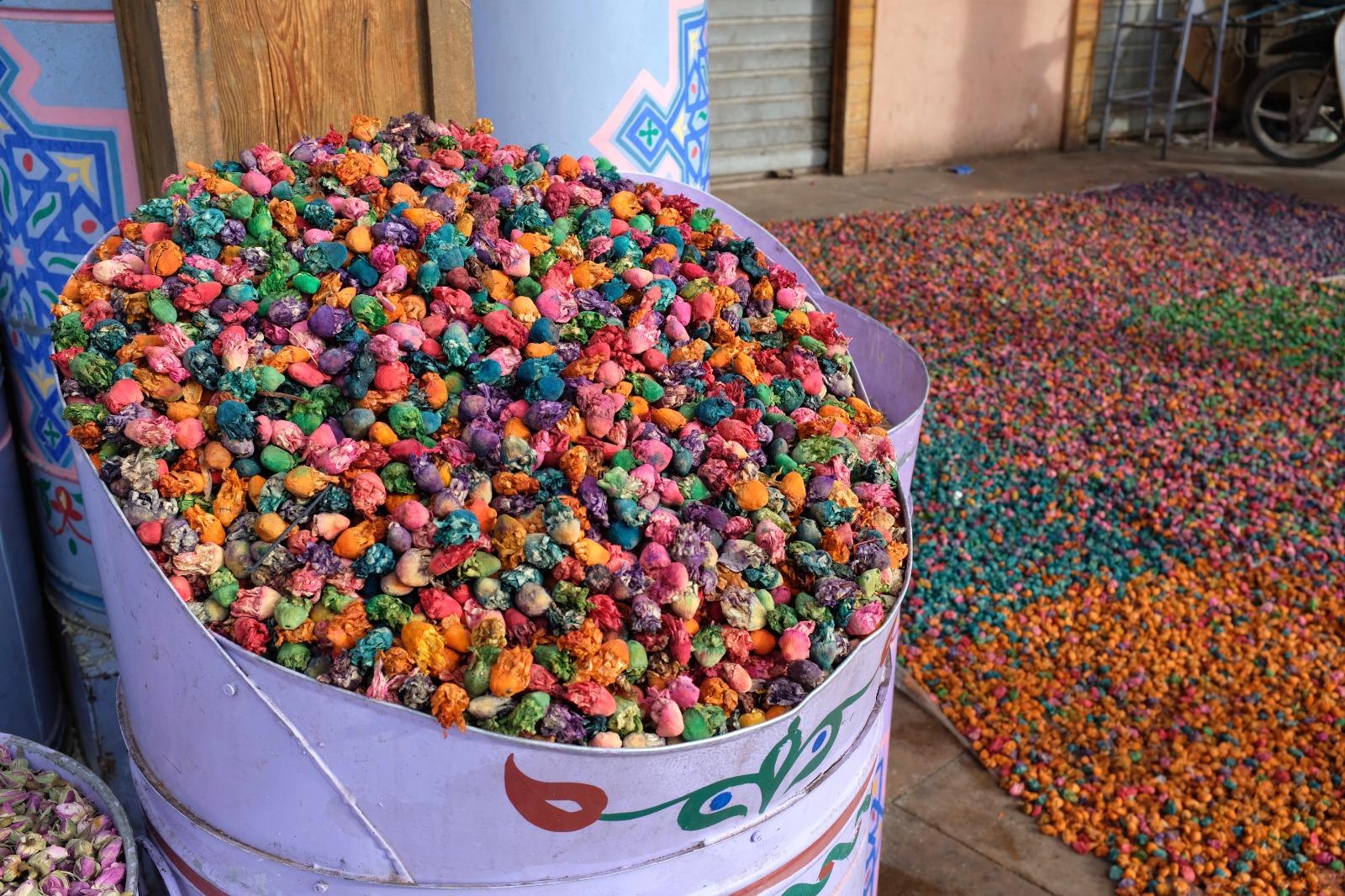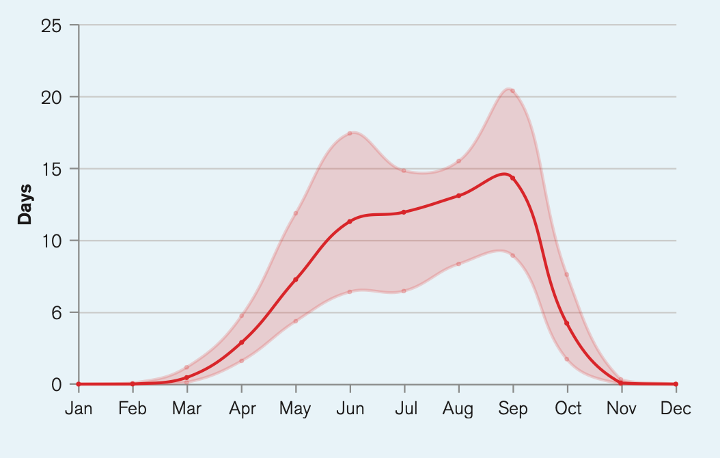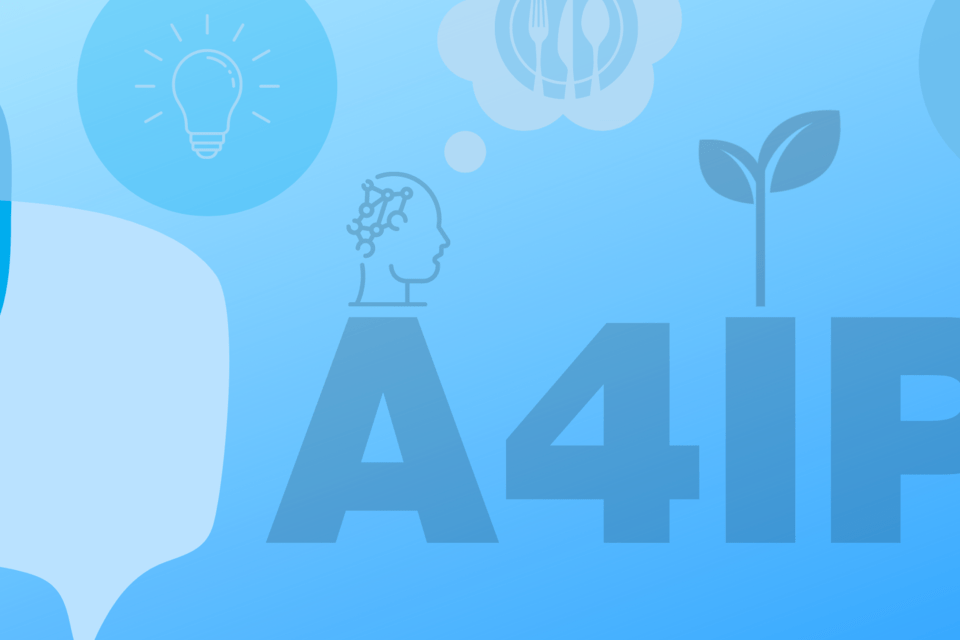Blog CGIAR Accelerate for Impact Platform and World Bank partner to launch Agri-Tech4Morocco Innovation Challenge

The challenge joins forces to spur youth entrepreneurship for climate-smart agriculture.
The Intergovernmental Panel on Climate Change released its sixth report in mid-2021, which called for urgent climate action to reverse the threats of exceeding tipping points and shift the global economy to a low-carbon footing[i]. Countries in North Africa-including Morocco-are climate hotspots with increasing frequency and intensity of droughts, higher temperatures, and changing rainfall patterns. These compound climate-related risks are alarming for the agricultural sector and are likely to affect rural livelihoods and national productivity as a whole. Semi-arid areas in particular are highly vulnerable to decreased water availability, impacting irrigation potential and in turn, reducing yields and lowering agricultural and livestock productivity. Increased heat and water scarcity conditions could have severe implications for human and animal health, contributing to crop failure, and heightening food security[ii].

The figure shows the projected change in number of very hot days (Tmax >35°C) across the seasonal cycle[iii]
Morocco has earned praise at the international level for showing leadership in climate action in recent years, particularly in terms of efficient energy transformation. With regards to agriculture, the Moroccan government launched the Green Generation 2020-2030 Strategy aimed at capitalizing on the achievements made by the former Green Morocco Plan of 2008. The Green Generation Strategy places youth entrepreneurs and rural populations working in agriculture among its priorities, as well as the modernization of wholesale and traditional markets, introduction of new technologies, digitalization of agricultural services, and improvement of quality and capacity for innovation[iv].
In this context, there has never been a better time to be an agri-tech start-up or a venture capital investor in the sector. According to AgFunder, a digitally native venture capital fund investing in transformational clean tech and agri-tech solutions, 2021 proved to be a “blow-out year” for investment in agri-tech. We witnessed tremendous strides made by agri-food tech startups, raising $24 billion in the first 6-months of 2021 alone, getting close to the total for all of 2020[v]. Africa in particular is fast becoming a leader in the agri-tech space with Kenya, South Africa, Nigeria, Ghana, and Morocco paving the way for rolling out climate-smart solutions[vi].
The Accelerate for Impact Platform, the CGIAR venture-focused research-for-development program that aims to stimulate the co-design and scaling of market-ready, science-based innovations by bridging science and entrepreneurship, is pleased to announce the partnership with the World Bank for the execution of the Agri-Tech4Morocco Innovation Challenge. With the contributions of the World Bank’s Trust Fund, Digital Development Partnership, and the support of IMPACT Lab – a leading domain focused accelerator – as a partner, the objective of the Challenge is to scout, select, and accelerate the most ground-breaking youth-led innovations operating in the agri-food tech space for Morocco. The Challenge will target early-stage innovations that demonstrate a proof of concept or minimum-viable-product of their products or services from or working in Morocco seeking to enhance efficiency, equity, and environmental sustainability.
“From the World Bank’s perspective, this is a key activity which will contribute to promote the digitalization of agriculture, together with other initiatives such as the on-going financing of the Project for Result supporting the Green Generation Strategy (250 M. USD loan),”
highlighted Rémi Trier, Senior Agricultural Specialist, from the Agriculture and Food Global Practice at the World Bank.
The Challenge will include a full 3-day Bootcamp for 20 promising innovators who will have the opportunity to engage in masterclasses delivered by sector experts and one-to-one coaching to build a solid pitch deck. At the end of the Bootcamp, the top 10 innovators will be invited to join a tailored 14-week Acceleration Program aimed at developing their market-ready products. Innovators will be supported through mentorship, scientific, and technology guidance provided by IMPACT Lab’s experts and CGIAR scientists, access to market, and access to investors and partners’ networks. The Acceleration Program will conclude with the Demo Day where the 10 innovations will pitch their business plan to qualified investors and other relevant partners.
“The Accelerate for Impact Platform will draw on the lessons learned of 2021 – particularly on reflections of the Agrobiodiversity Innovation Challenge – to keep developing a pipeline of disruptive science-based solutions that align with or complement CGIAR’s ambitious research agenda, securing long-term collaborations, and sustaining innovators through technological, and scientific capacity building support,”
stated Gianpiero Menza, Senior Partnerships and Innovative Finance Officer at the Alliance/CGIAR.
With the seeds of agri-tech for Morocco already being sown, CGIAR, World Bank’s Digital Development Partnership, and IMPACT Lab are excited to scale up and out the most powerful agri-tech solutions for Morocco that combine scientific creativity, technological ingenuity, and entrepreneurship.
Stay tuned for updates on the call for applications of the Agri-Tech4Morocco Innovation Challenge.
Get in touch with us at [email protected]
[i] Intergovernmental Panel on Climate Change. 2021. Climate Change 2021: The Physical Science Basis. Available at https://www.ipcc.ch/report/ar6/wg1/#FullReport
[ii] World Bank. 2021. Climate Risk Country Profile: Morocco. Available at https://climateknowledgeportal.worldbank.org/sites/default/files/2021-09/15725-WB_Morocco%20Country%20Profile-WEB.pdf
[iii] World Bank Climate Change Knowledge Portal. 2021. Climate Data - Projections Morocco. Available at https://climateknowledgeportal.worldbank.org/country/morocco/climate-data-projections
[iv] Royaume du Moroc: Ministère de l'Agriculture. 2021. Génération Green 2020-2030: Ministère de l'Agriculture. Available at https://www.agriculture.gov.ma/fr/ministere/generation-green-2020-2030
[v] AgFunder. 2021. AgFunder AgriFoodTech Investment Report 2021. Available at https://agrinovusindiana.com/wp-content/uploads/2021/07/2021-agfunder-global-report.pdf
[vi] Leiva, M. 2021. Agritech start-ups provide fertile land for African investors. Investment Monitor. Available at https://www.investmentmonitor.ai/sectors/agribusiness/agritech-start-ups-provide-fertile-land-for-african-investors

